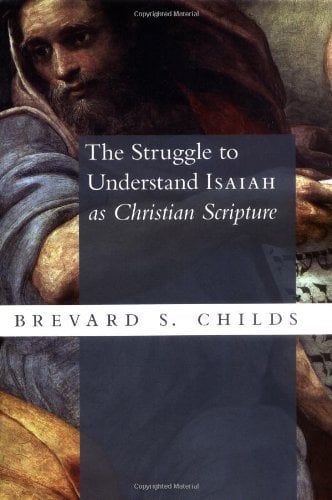Johannes Cocceius (1603-1669) was a well known Reformed exegete. He had considerable linguistic skills (Latin, Greek, Hebrew, Syriac, even Arabic) and he knew rabbinic literature as well. He became a professor from 1643-69 (in later years at Leiden). Childs summarizes Cocceius’ approach by saying he focused on a careful interpretation of the meaning of words within their literary context, not happy with those who contrasted the spiritual with the literal sense. It is his Christological focus in every aspect of interpretation that is his hallmark. The Gospel must be the starting point for the interpretation of Moses and the prophets. One doesn’t start with the OT and move to the NT (contrast Calvin), one does the reverse. He was attacked by both the old Reformed crowd and the humanists for this approach. Childs reports the Latin aphorism about him—Grotius found Christ nowhere in the OT, Cocceius everywhere. As Childs points out, Cocceius is not an early advocate of Heilsgeschichte, though some later credited him with that. He never speaks of an historical development in stages that climaxes in Christ. The incarnation of God in Christ is the one event that establishes the covenant of grace and it is not the final stage of a historical development.
Cocceius is credited with having an apocalyptic view of history, and there are only two ages the age of sin and darkness when Satan rules, and the age of the messiah and of light.
The two ages correspond with the covenant of works and the covenant of grace. The historical pattern is based on his analysis of Daniel, Mt. 24, and Revelation, and basically it is an incursion theology. Things do not develop historically, God simply repeatedly intervenes. This is why his thought has been called apocalyptic. Lest we misunderstand, Cocceius thinks that the Christian lives in both this age and the messianic age—they overlap. The Kingdom has come in part but it has not yet been consummated. He is often criticized for trying to correlate prophecy with current events (e.g.Is. 23 refers to events concerning Charlemagne, Is. 32.7 alludes to the death of Gustavus Adolphus). It is not clear how much justice there is in such a criticism. In a sense one could accuse him of extreme preterism. For example, he sees Is. 19.1-15 as fulfilled by Constantine bringing down pagan Rome’s dominance over Christianity and it also refers to Constantine’s successors who also brought down the heretics.













